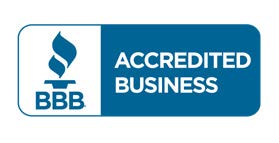30/30 TRANSITION PROGRAM
Home | 30/30 TRANSITION PROGRAM
ABOUT THE PROGRAM
30/30 TRANSITION PROGRAM
This program assists low to moderate-income seniors aged 65+ as they transition from acute care to home by providing financial support to participate in Home Care services. For 30 days post-discharge, our program offers case management, home health, hospice, caregiving, and logistical support. This includes assistance with medication, nutrition, housing, insurance guidance, and personal care needs, while promoting social connections and community engagement. We work in collaboration with hospital discharge planners to ensure a smooth transition, track the effectiveness of resources, and monitor re-hospitalizations, all in alignment with California's Master Plan on Aging. If needed, we also assist in finding alternative housing options.
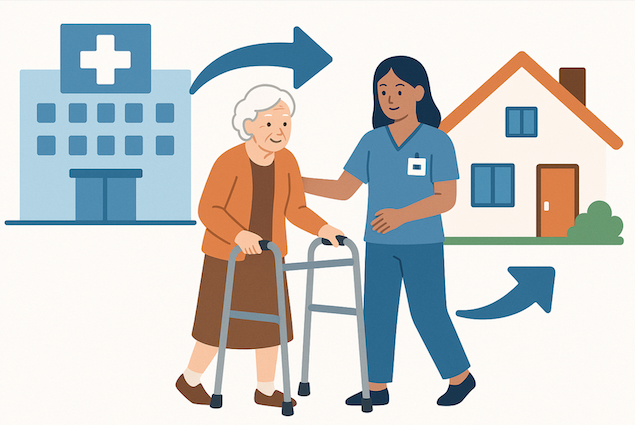
30/30 Safely Home Transitions Program
Post-acute Transition Program:
This healthcare collaboration aims to transition patients home from acute care efficiently, decrease re-hospitalizations, and cut caregiving costs through coordinated care. Included is a 30-day case manager.
TRANSITIONAL CASE MANAGEMENT
- Transition coordinator admits the patient after discharge from a skilled setting.
- The coordinator serves as the case manager.
- The coordinator manages or assists with care for other services.
- Any changes in the patient's condition are reported to their physician or clinical team.
In-Home Care
- During the first 30 days after discharge, the patient will receive care assistance.
- The first 30 hours of care assistance are provided at a reduced rate of $28 per hour.
- A minimum of 4-hour shifts are required for this reduced rate.
Care Professionals Assist With:
- Bathing & Dressing
- Toileting & Meal Preparation
- Transportation & Pharmacy pick-up
- Medication reminders & Light Housekeeping
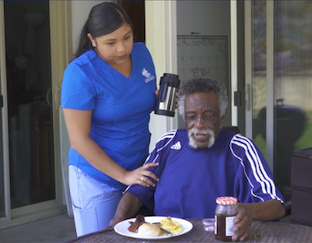
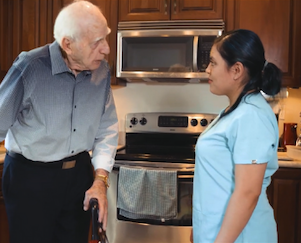
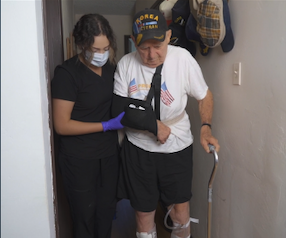
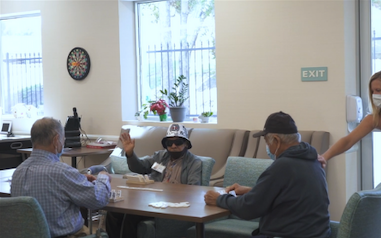
TRANSITIONS PROGRAM DETAILS:
Target Audience: Low to moderate income seniors aged 65+ discharging from acute or subacute care settings to home
Service Duration: 30 days post-discharge
Resource Management: Case management
Home Assistance: Includes home health, hospice, and caregiving services
Logistical Support: Helps to ensure smooth transportation and coordination of durable medical equipment provisions
Medication Management: Aids in proper medication administration
Nutrition: Provides advice for seniors to receive proper meals and facilitates initiation of such programs
Housing Assistance: Provides help with housing situations including emergency circumstances
Insurance Guidance: Assistance with understanding and enrolling in beneficial programs such as PACE, SCAN, Medicare Advantage, and long term care insurance
Personal Care Needs: Addressing the individual care necessities of each senior including all ADLs and IADLs as needed
Social Connection: Alleviates social isolation and promotes community interaction
Seamless Transition: Collaborating with hospital and acute care discharge planners to identify "at-risk" patients and facilitate a hassle-free discharge process
Collaborative Approach: Conducting care conferences to coordinate better clinical and non-clinical care, enhancing the wellbeing of at risk seniors.
Enrollment and Tracking: Tracking results of which resources are most effective for patients
Re-hospitalizations: Monitoring the instances of re-hospitalizations to improve service delivery and repeated episodes
Alignment with State Policy: Directly resonating with the objectives of the California Master Plan on aging to help seniors age with dignity and respect in the comfort of their homes
Placement Coordination: If staying home is no longer a viable option, assistance with finding alternate housing options more appropriate to the individual’s needs
PROGRAM RECIPIENTS
- William D. was an 83 year old retired Master Gunnery Sargent who served three tours of duty in Vietnam. He had been the primary care provider for his wife for years after she had multiple strokes while his own health and mobility was failing. Both ended up hospitalized for an extensive period of time: he was transferred to a rehabilitation facility; she was placed into post-acute care. Master Sargent D. was discharged home with care through the VA-San Diego but needed more assistance in those first days. FCI’s 30/30 Transitions Program allowed affordability during those first days of transitioning home until family and services were set in motion. No longer able to drive to medical appointments, he became an extremely high risk for rehospitalization. FCI also provided him transportation to and from those crucial post-hospital appointments accompanied by a care professional.
- Mrs. T returned home following a hip replacement that resulted in 2 dislocations and repairs in a very short period of time. Although she shares the piece of property she lives on with her daughter and family, she is on a fixed income herself. With the help of FCI, she has someone to supervise her for safety, prepare her meals, provide medication reminders and socialization.
- Frequent hospital “guest,” Pat, had been admitted twice in four weeks for recurring UTI’s and non-compliance with medications. The second hospitalization landed her in skilled nursing for a short stay. Upon discharge, FCI provided transportation home and the 30/30 Transitions Program ensuring oversight was managed for 6 weeks. During that time her medications were routinely taken, her meals prepared, her doctor appointments were kept, and her personal hygiene was finally under control. Her family was then able to safely move her into a community that met Pat’s emotional, social and health related needs.
- L.D. is an 85-year-old woman with significant psychiatric episodes, many of which are brought on due to her inability to self-manage medications. After four ER admissions, she was referred to FCI’s 30/30 Transitions program through a local hospital after her very determined intent to leave AMA. The hospital collaborated with APS, and she was discharged home. The financial assistance and care oversight kept her from returning to the hospital and she recently moved to the East Coast to live with her extended family.
- J.T., a 66 year old patient with end-stage bone cancer, was receiving hospice services at home. Although his wife and family members rallied to help in every way possible, more help was needed. The hospice team inquired as to FCI’s ability to help with the financial cost for the family to bring in a professional home care aide to stay to come in on what turned out to be the last night of his life. FCI covered the cost in it’s entirety and the family was able to have the professional support they needed during such a tender time.
- B.G., a 54 year old woman, had no use of her arms and restricted mobility following a horrific car accident. She lived alone in a mobile home park and had no family living locally. She was awaiting approval for County support but in the interim had no assistance. FCI provided funding for temporary Case Management intervention who coordinated necessary resources such as food and medication delivery and transportation.
- V.V., a 93 year old man who was hospitalized following a stroke, was being discharged home where he had been living alone. His niece agreed to come from the East Coast to stay with him temporarily but couldn’t arrive for 3 days. FCI Caring was contacted to provide the financial support needed for a case management to assist in coordinating the discharge, medication pick-up, transportation home, caregiving service and a Personal Emergency Response System. This gentleman, who would otherwise have been alone for three days, was safely cared for in his own home until his family member arrived.
- D.M., an 82 year old man, was hospitalized following a fall that resulted in a fractured pelvis. He was the primary caregiver for his wife of 60 years who had dementia, which he had been hiding from friends and distant family members. When it was discovered that she was home alone, a wellness visit was made, finding her extremely anxious and confused as to where her husband had gone. FCI was again approached for funding assistance in order to have a personal care assistant provide daily transportation for the wife to get to and from the hospital to sit bedside with her husband. At the end of each day, she was taken back home, fed dinner and a “tucked in” for the night. No words describe the relief on her husband’s face every morning that she showed up for a visit. After five days, he returned home to her and County resources were brought in to help.





